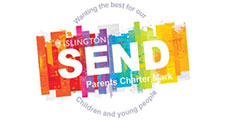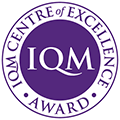Wellbeing and Inclusion
The Wellbeing Centre is an on-site facility that aims to support, maintain and sustain students who are ‘at risk’ of not reaching their potential at Beacon High. The pastoral staff work in partnership with students and parents/carers to help students who are underachieving and for those who may be experiencing emotional or behavioural difficulties due to personal circumstances at home or at school. The Wellbeing Centre, and the services provided by the staff, are additional and complementary help to the normal support structures of the school.
Philosophy of the Wellbeing Centre
Staff recognise that the reasons for underachievement are complex and many barriers may stem from circumstances beyond the control of the school. The Wellbeing Centre provides a stable, positive and supportive environment that encourages students so that they can achieve academically and personally.
The staff work with students to develop self-awareness, positive self-image, an understanding of their academic strengths and their individual learning styles so that they are empowered through their subsequent successes. Students are provided with every opportunity to achieve and staff who work with the students who are referred to the Wellbeing Centre will reinforce positive attempts made by the student and hold them accountable for the targets that have agreed and set for them to achieve.
Students are constantly reminded that at school they can impact on their future by working to reach their potential.
Aims of the Wellbeing Centre:
- Identify barriers to learning that prevent individuals from reaching their full potential.
- Reduce the number of exclusions and the number of students at risk of exclusion by early intervention.
- Improve the attendance of targeted students.
- Ensure that all students have equal and full access as well as opportunity, to reach their full potential.
- Create a flexible support system that is responsive to the needs of the individual student, bearing in mind the needs of the wider school community.
- Work with pastoral, SEND and relevant subject staff to create an integrated system of student support.
- Address the academic, social, emotional and behavioural difficulties explicitly through sessions designed to support these needs.
- Develop an individual action plan for each student focusing on their particular area of need and for this plan to be monitored regularly.
- Successfully reintegrate the student into the full life of the school whenever possible.
The Wellbeing Centre Manager manages the Wellbeing Centre which is also a hub for professionals working with young people; it is focused upon support and early intervention work for our students who cause concern. More broadly, the remit is one of supporting students to ensure that they attend school, are prepared for lessons and learning and that their behaviour is appropriate, therefore ensuring they reach their full potential whilst at Beacon High.
Support Organisations - Wellbeing
VAWG - Violence Against Women and Girls
There are times when, as females, we might feel unsafe on the streets of London. This could be for a number of reasons, including environmental factors such as poorly lit streets/spaces etc., lack of CCTV, drug use, abandoned cars/houses or behavioural such as cat calling, wolf whistling and being followed.
The Metropolitan Police want to look at ways in which they can support females feeling safer and they are piloting a new link which allows females to provide information of places and situations where they feel unsafe.
The information received will be used to target both police and local authority resources.
Any crimes should be reported in the normal way by either calling 999 or reporting it online.
NCL (North Central London) 24/7 Mental Health Support Line: 0800 151 0023
It is currently open to ALL children and young people and their parents/carers who live in Islington, this includes CAMHS, Barnardo’s, Brandon Centre, EWBs, and what used to be TYS Counselling.
Calls will be answered by a dedicated CYP team between 9am and midnight, and by the Adult Crisis Line between midnight and 9am.
In working hours, calls will be transferred to our Islington SEMH duty team. Out of hours, they will be put through to trained mental health professionals.
Information about calls received out of hours will be sent via email to SEMH duty and will be followed up by the clinician on duty on the next working day. This will include referring on to the Islington CAMHS crisis team or AAOT and informing the young person’s current team.
The line is now open to referred and non-referred CYP in Islington.





